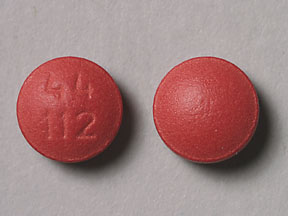
Sudafed Coupons & Savings Card – Discount Prices from $10.14
Brand for: Pseudoephedrine hcl
My prescription
Edit
30MG, Pseudoephedrine Hcl (24 Tablets)
Select pharmacy

Walgreens
$10.14
COUPON PRICE
Albertsons
$16.54
COUPON PRICESudafed savings card
Show this card to your pharmacist
Walgreens
$10.14
BIN
ID
PCN
GRP
019876
LHB25C136A
CHIPPO
LHX
Powered by
Related alpha agonists prescriptions
More prescriptions for nasal congestion
Related alpha agonists prescriptions
More prescriptions for nasal congestion
Sudafed (Pseudoephedrine Hcl) dosage forms
Dosage Quantity Price from Per unit 30MG 24 Tablets $10.14 $0.42 30MG 15 Tablets $9.71 $0.65 30MG 20 Tablets $9.95 $0.50 30MG 30 Tablets $10.42 $0.35 30MG 100 Tablets $13.74 $0.14 30MG 12000 Tablets $586.80 $0.05
| Dosage | Quantity | Price from | Per unit |
|---|---|---|---|
| 30MG | 24 Tablets | $10.14 | $0.42 |
| 30MG | 15 Tablets | $9.71 | $0.65 |
| 30MG | 20 Tablets | $9.95 | $0.50 |
| 30MG | 30 Tablets | $10.42 | $0.35 |
| 30MG | 100 Tablets | $13.74 | $0.14 |
| 30MG | 12000 Tablets | $586.80 | $0.05 |
What does Sudafed do to you?
Sudafed, which contains the active ingredient pseudoephedrine, is a decongestant. It works by narrowing the blood vessels in the nasal passages, leading to reduced swelling and congestion. This helps alleviate symptoms of nasal congestion associated with colds, allergies, or sinus infections. It may also cause side effects such as increased heart rate, nervousness, or trouble sleeping in some individuals.
Which one is better, Sudafed or Mucinex?
The choice between Sudafed and Mucinex depends on the symptoms being treated. Sudafed (pseudoephedrine) is typically used to relieve nasal congestion by narrowing the blood vessels in the nasal passages. Mucinex (guaifenesin), on the other hand, is an expectorant that helps loosen and thin mucus in the airways, making it easier to cough up. If nasal congestion is the primary issue, Sudafed may be more appropriate. If the goal is to relieve chest congestion and facilitate mucus clearance, Mucinex might be the better option. It is advisable to consult with a healthcare professional to determine the most suitable medication based on individual symptoms and health conditions.
Why do doctors tell you not to take Sudafed?
Doctors may advise against taking Sudafed (pseudoephedrine) for several reasons. It can raise blood pressure and heart rate, which may be concerning for individuals with hypertension or heart conditions. It can also interact with certain medications, such as monoamine oxidase inhibitors (MAOIs), and may not be suitable for individuals with certain medical conditions like glaucoma or hyperthyroidism. Additionally, it can cause side effects such as insomnia, nervousness, or dizziness. It's important for patients to discuss their medical history and current medications with their doctor to determine if Sudafed is safe for them.
Does Sudafed break up mucus?
Sudafed, which contains pseudoephedrine, is primarily a decongestant. It works by narrowing the blood vessels in the nasal passages to reduce swelling and congestion. However, it does not directly break up mucus. For breaking up mucus, an expectorant like guaifenesin is typically recommended.
Why is Sudafed not recommended?
Sudafed, which contains pseudoephedrine, is not recommended for some individuals due to potential side effects and contraindications. It can cause increased blood pressure, heart rate, and may lead to nervousness or insomnia. It is also not suitable for people with certain medical conditions such as hypertension, heart disease, or hyperthyroidism. Additionally, pseudoephedrine can interact with other medications, such as monoamine oxidase inhibitors (MAOIs). It is important for individuals to consult with a healthcare provider to determine if Sudafed is appropriate for their specific health needs.
